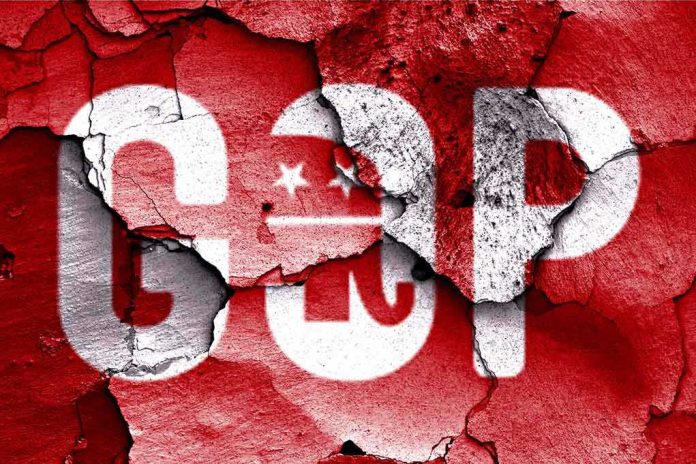
A high-profile Trump nominee’s shocking racist texts have sparked a political maelstrom, leaving the Trump administration and Senate Republicans navigating turbulent waters.
Story Highlights
- Paul Ingrassia withdraws his nomination for the Office of Special Counsel following a scandal.
- Private texts reveal Ingrassia’s extremist views, including a self-professed “Nazi streak.”
- Bipartisan condemnation forces Senate Republicans to break with Trump.
- Pivotal moment for the GOP’s internal dynamics and public accountability.
The Unraveling of a Nomination
Paul Ingrassia, nominated by Donald Trump to lead the Office of Special Counsel, faced a storm of controversy when private text messages surfaced, exposing his extremist views. The texts, published by Politico, were damning. They included an admission of a “Nazi streak” and derogatory comments about civil rights commemorations like Martin Luther King Jr. Day, Juneteenth, and Black History Month. These revelations led to a swift political fallout, culminating in Ingrassia’s withdrawal on October 21, 2025.
The impact of these texts reverberated through the halls of the Senate, where Republican leaders, traditionally loyal to Trump, found themselves in the uncomfortable position of distancing themselves from one of his nominees. Majority Leader John Thune and other senior GOP figures publicly urged Ingrassia to step down, highlighting a rare and significant break with the Trump administration. This incident underscores the growing complexity within the Republican Party as it grapples with the boundaries of acceptable rhetoric.
Implications for the Trump Administration
The withdrawal of Ingrassia’s nomination is more than just a personal setback; it poses a strategic challenge for the Trump administration. The Office of Special Counsel is a crucial oversight agency, and the lack of leadership following Ingrassia’s withdrawal creates a temporary vacuum. Moreover, this incident reflects broader issues within Trump’s personnel strategy, which has faced criticism for appointing individuals with controversial or extremist backgrounds.
The administration must now navigate the reputational damage while considering the appointment of a new nominee who can pass Senate scrutiny. This situation also prompts a reconsideration of internal vetting processes to avoid similar embarrassments in the future.
Reactions and Reflections
Civil rights advocates have hailed Ingrassia’s withdrawal as a victory for accountability and a pushback against extremist rhetoric in government. For them, this incident serves as a reminder of the ongoing battle against racism and the importance of maintaining vigilance against its normalization in public office.
Conversely, some Trump allies view the media’s role in the scandal as overreach, framing the exposure of Ingrassia’s texts as a form of character assassination. This perspective highlights the polarized nature of the discourse surrounding the incident, with differing interpretations of media accountability and the limits of public scrutiny.
Long-Term Consequences for the GOP
This event could have lasting implications for the Republican Party as it navigates internal divisions and the limits of party loyalty. The public break with Trump demonstrates a willingness among Senate Republicans to prioritize public accountability over blind allegiance, potentially setting a precedent for future nominations and party discipline.
In the broader context, this incident may influence the GOP’s internal vetting processes and its approach to balancing loyalty with the need for candidates who can withstand public and media scrutiny. It also reinforces the need to address extremist rhetoric within the party to maintain credibility and public trust.







